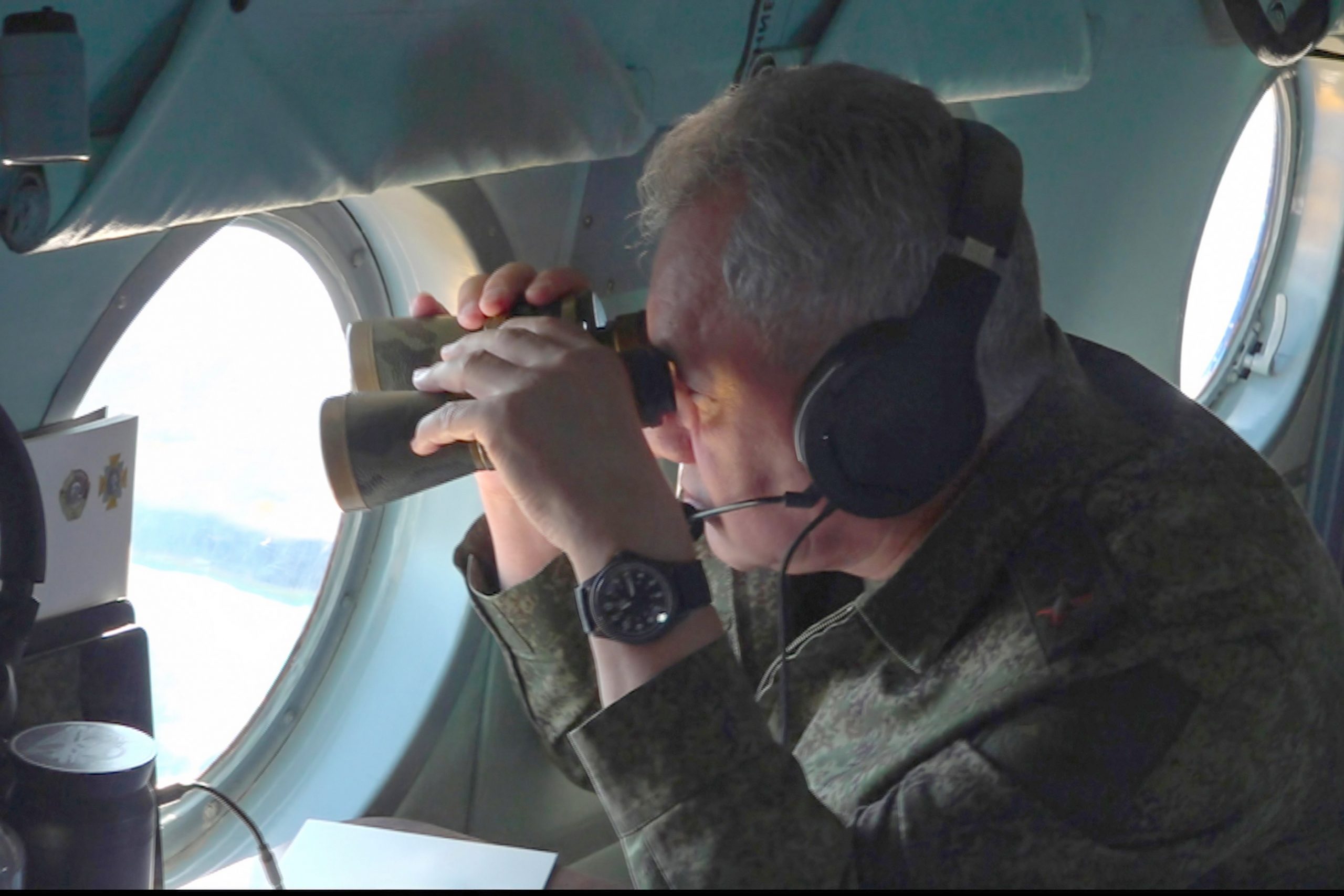Lukashenka, along with Putin, escalates the nuclear situation
 The situation got worse
The situation got worse

After several months of hiatus, the Russian president has returned to making nuclear threats. Lukashenka also decided to support Putin after his speech at the Valdai Forum. He threatened the West with the use of nuclear weapons if the West did not stop the supply of weapons to Ukraine. While Russian officials deny any intention to resume nuclear testing, Lukashenka’s sweeping comments suggest otherwise.
Although the Russian leader promised not to change the nuclear doctrine or launch preemptive strikes, he made it clear that the Kremlin is considering resuming nuclear tests. He also hinted to the Duma that the ratification of the Comprehensive Nuclear Test Ban Treaty (CTBT) needs to be withdrawn – experts are allegedly pushing him to do this. In particular, they advise testing the Burevestnik nuclear-powered cruise missile and the Sarmat intercontinental ballistic missile with a nuclear warhead. However, the CTBT signed and ratified by Russia does not allow this. However, according to Putin, Russia may withdraw its ratification, since the United States signed the agreement but did not ratify it. And he addressed this question to the deputies.
The deputies understood the hint “correctly.” A week later, developing the guidelines given by the president, they promptly prepared a bill to revoke ratification of the CTBT.
Formally, this review is necessary to eliminate the imbalance between Russia and the United States regarding the scope of obligations under the treaty. According to Putin, America is taking a destructive position by declaring that ratification of the CTBT will not receive support in Congress. That is why, according to the Duma, Russia’s ratification of the CTBT should be withdrawn.
Putin first spoke about the possibility of resuming nuclear testing during his February address to the Federal Assembly. Announcing the suspension of Russia’s participation in the Treaty on Measures for the Further Reduction and Limitation of Strategic Offensive Arms (START), he ordered the Ministry of Defense and Rosatom Corporation to ensure readiness for nuclear weapons testing. At the same time, he stated that Russia would not be the first to do this – only in response to the resumption of nuclear tests by the United States.
The first direct hint that the Kremlin wants to take a step in this direction appeared in mid-August. Then Defense Minister Sergei Shoigu, together with the head of Rosatom, Alexei Likhachev, flew in a helicopter over the nuclear test site on the island of Novaya Zemlya, where from 1954 to 1990 the USSR carried out 132 nuclear explosions.
At the same time, Russian officials claim that the withdrawal of the instrument of ratification of the CTBT does not mean an intention to conduct nuclear tests.
Lukashenka also decided to take the floor. Taking advantage of his position as the holder of Russian tactical nuclear weapons, he supported Putin’s movement along the ladder of nuclear escalation, but more radically. According to him, by arming Ukraine, especially with long-range missiles capable of hitting Russian territory at a depth of up to 300 km, the United States is pushing the Kremlin to use nuclear weapons.
Lukashenka’s comment after Putin’s speech at the Valdai Forum allows, in some sense, to draw parallels with the beginning of discussions on the issue of deploying Russian tactical nuclear weapons in 2021. Then Lukashenka also stated that this would be a mirror measure: only if NATO was the first to take a similar step in Poland. However, on May 25 of this year, without waiting for NATO to act, Minsk and Moscow agreed on the deployment of nuclear weapons in Belarus.
The same could happen with Russia’s withdrawal of ratification of the CTBT, despite official assurances not to conduct tests. Thus, the Kremlin no longer has to wait for the United States to resume nuclear testing first. Such an unprecedented step as the deployment of nuclear weapons outside Russian territory in Belarus did not at all require action on the part of Russian legislators.
Subscribe to our newsletter




Situation in Belarus
Constitutional referendum: main consequences


 Video
Video
How to count the political prisoners: are the new criteria needed?


 Video
Video
Paternalism In Decline, Belarusian Euroscepticism, And The Influence Of Russia


 Video
Video












